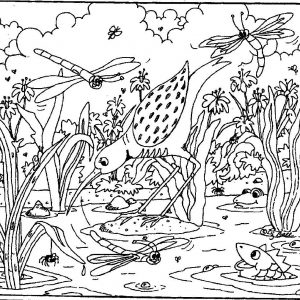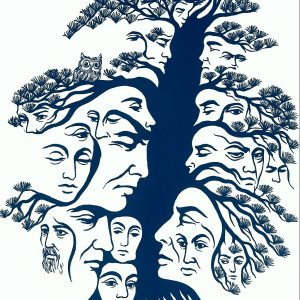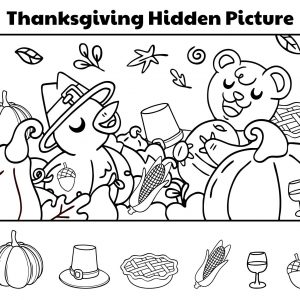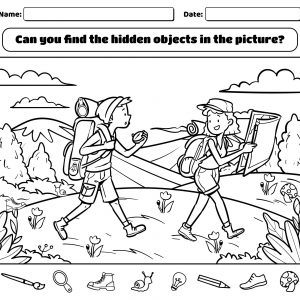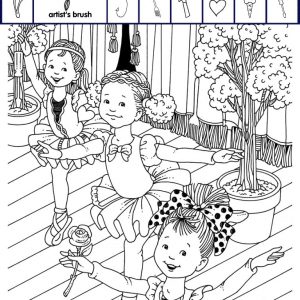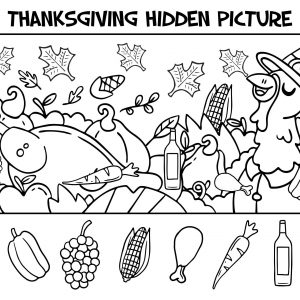The Hidden Faces of Art: Exploring the Beauty of Optical Illusion Drawings
At first glance, the image above looks like a simple black-and-white sketch of branches and profiles. But the longer you look, the more you realize there’s something extraordinary happening. Dozens of faces emerge from the lines, blending seamlessly with the patterns, each one distinct yet interconnected. This kind of optical illusion art captures our imagination because it challenges how we see, reminding us that reality often depends on perspective. Let’s explore why hidden face illustrations like this one are so captivating and what they reveal about both art and the human mind.
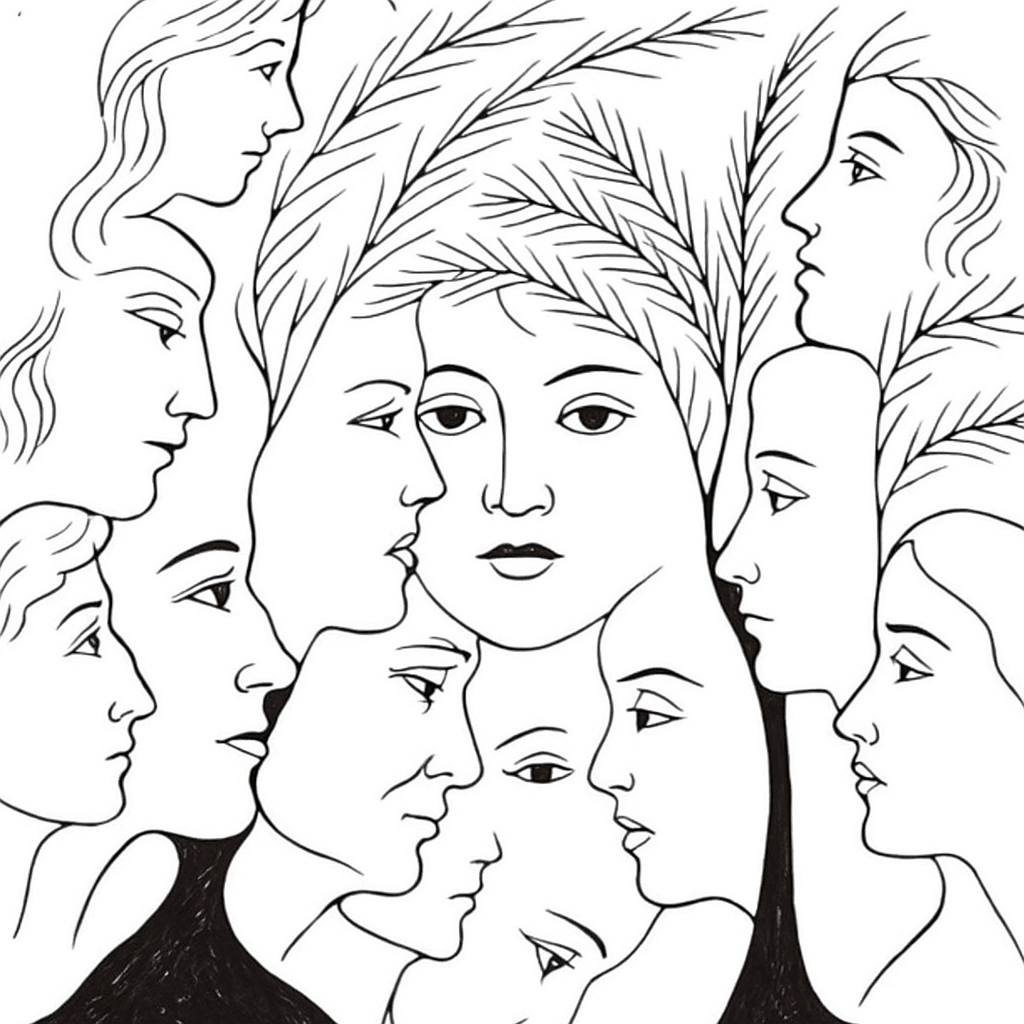
The First Glance: More Than Meets the Eye
When you first look at this picture, you probably notice a few obvious faces. Maybe the larger one in the center grabs your attention, or the two symmetrical profiles facing each other along the edges. But with each passing moment, more faces begin to reveal themselves—some upright, others sideways, some hidden between lines that first appeared to be branches or shadows.
This is the beauty of hidden face art: it rewards patience and careful observation. The image changes depending on how closely you look, almost like peeling back layers of a mystery.
The Art of Illusion: How Hidden Faces Are Created
So, how do artists manage to hide so many details in plain sight? It all comes down to technique. By using negative space, flowing lines, and clever positioning, they disguise features like eyes, noses, and lips within natural shapes. A curve that looks like a branch may also be part of someone’s forehead. A shadow that blends into the background might actually be a cheek or jawline.
This blending is what tricks our eyes. Our brains are wired to recognize human faces instantly—a phenomenon called pareidolia. That’s why even when the details are incomplete, our minds fill in the blanks, allowing us to see full portraits where there might only be a few well-placed lines.

The Symbolism Behind Hidden Faces
Beyond the visual trickery, hidden face illustrations often carry deeper meaning. A tree filled with faces, for example, might symbolize ancestry, memory, or the interconnectedness of humanity. In this particular drawing, the overlapping profiles can represent the many sides of identity—different versions of ourselves, different people in our lives, or even the layers of history we carry within us.
The large central face surrounded by smaller ones could symbolize community, guidance, or the way individuals are shaped by those around them. In this way, the artwork becomes more than just an illusion—it turns into a reflection of life itself.

Why We’re Drawn to Hidden Face Art
Have you ever wondered why these kinds of puzzles fascinate us so much? It’s because they engage both logic and creativity at the same time. On one hand, we’re problem-solvers, scanning the picture methodically to uncover every hidden detail. On the other, we’re dreamers, allowing our imagination to interpret shapes and meanings.
It also taps into our love for discovery. Spotting a new face in the image feels like solving a riddle or uncovering a secret. That little spark of “aha!” is what keeps us coming back, staring at the picture again and again, convinced there’s still more to find.
The Connection Between Puzzles and Mindfulness
Interestingly, hidden face art isn’t just fun—it can also be calming. In today’s fast-paced world, where distractions are constant, focusing intently on a single picture forces us to slow down. We stop scrolling, stop rushing, and let ourselves get absorbed in the process of observation. That’s mindfulness in action.
By searching for the faces, we train ourselves to pay attention, notice details, and stay present in the moment. It’s like meditation disguised as a puzzle—simple, yet powerful for mental clarity.

How to Spot Hidden Faces More Easily
If you want to get better at discovering every hidden detail in an image like this, here are a few tips:
- Step back. Sometimes, faces are easier to see from a distance.
- Tilt the image. Rotate it slightly or even turn it upside down—you might spot new features.
- Scan systematically. Move from top to bottom or left to right instead of letting your eyes jump randomly.
- Look for symmetry. Faces often hide in mirrored shapes, so check where two lines meet.
- Relax your gaze. Instead of staring hard, let your eyes soften—you’ll be surprised what emerges.
With practice, you’ll start uncovering faces that others might miss.
The Universal Appeal of Optical Illusions
What makes hidden face art so timeless is that it appeals across ages. Children love the game-like challenge of finding faces, while adults appreciate the artistry and deeper symbolism. It’s interactive without needing technology—just a pencil, paper, and creativity can create hours of fascination.
And in a world overflowing with images, optical illusion art stands out because it doesn’t just show you something—it asks you to participate. It turns passive viewing into active discovery, and that’s why it never goes out of style.
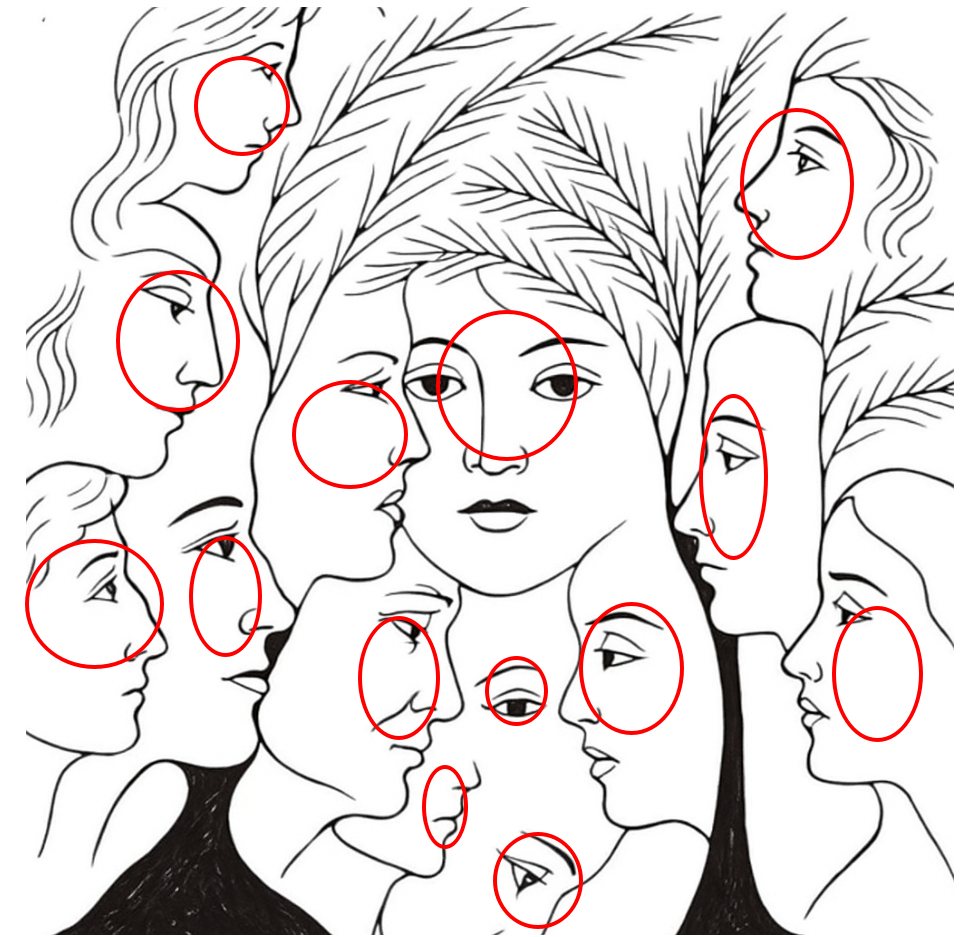
Conclusion: Seeing Beyond the Surface
This hidden face drawing is more than just a clever trick—it’s a reminder that life is layered, and what we see at first glance is rarely the full picture. Each new face you uncover feels like a small discovery, and with it comes a deeper appreciation for the beauty of perspective.
In the end, that’s the lesson of this art: slow down, look closely, and open your mind. Because just like in this illustration, the world around us is full of hidden details, waiting to be seen by those willing to take a second look.
